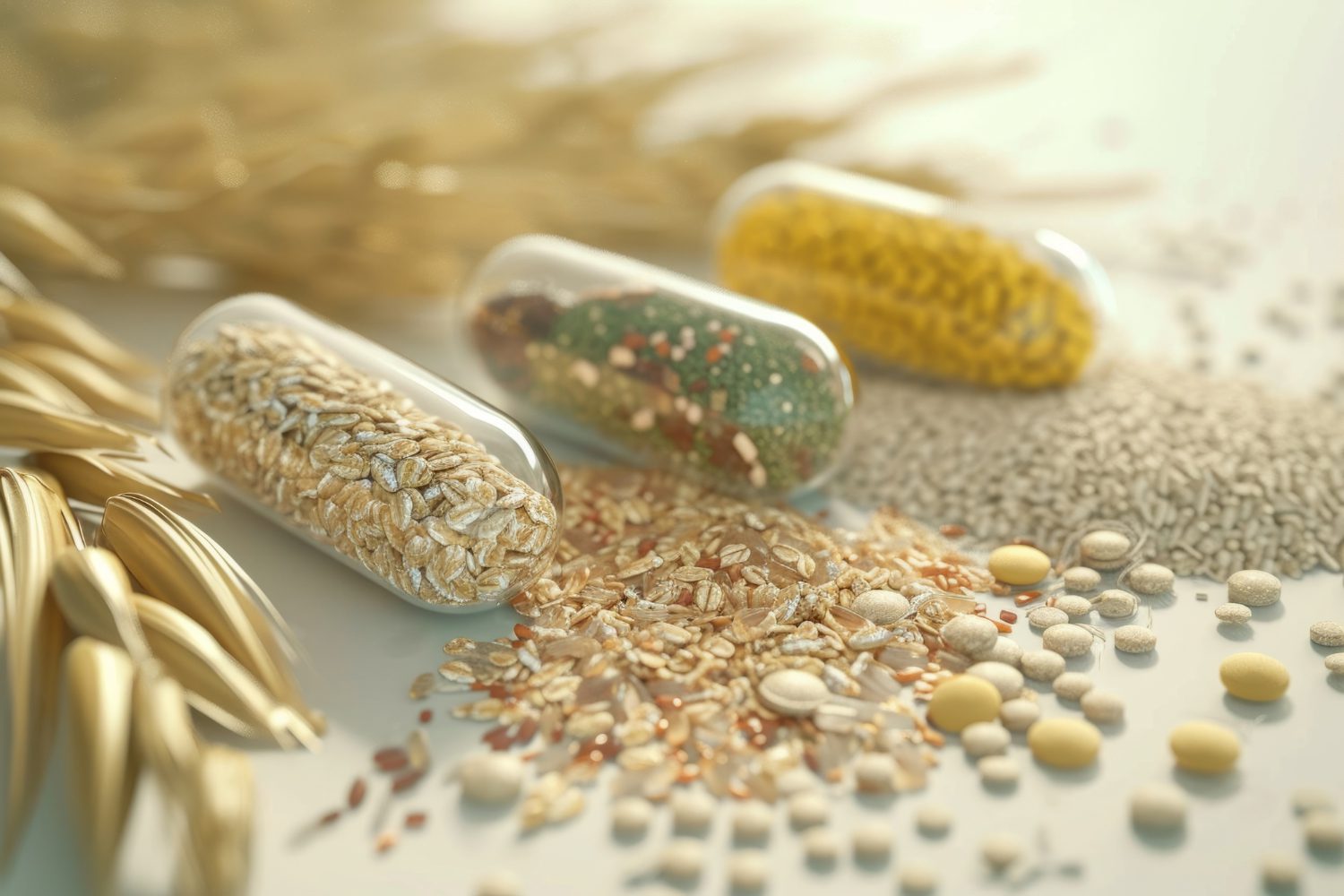Parkinson’s Disease is widely recognised as a neurological disorder, best known for its motor symptoms such as tremor, rigidity, and slowed movement. Yet in recent decades, research has shown that the disease extends far beyond the brain. The gut, and specifically the community of microorganisms that live within it, the gut microbiota, plays a major role in the early development, progression, and management of Parkinson’s.
A number of researchers have highlighted the links between gut health, microbial changes, and the gut–brain axis in Parkinson’s Disease, why digestive problems often precede motor symptoms by many years, and how this pathway may be crucial for both understanding and treating the condition.
Early Clues: Gut Symptoms Before Diagnosis
One of the most striking features of Parkinson’s is that many non-motor symptoms appear decades before motor signs are recognised. Among these, gut issues are particularly prominent:
- Constipation may occur up to 20 years before diagnosis. Studies show that unexplained, chronic constipation is associated with up to a 24-fold higher risk of developing Parkinson’s Disease.
- Irritable Bowel Syndrome (IBS) has been linked with a modestly increased risk, although this may partly reflect diagnostic bias.
- Inflammatory Bowel Disease (IBD), including Crohn’s disease and ulcerative colitis, is associated with around 40% higher Parkinson’s Disease risk. Patients treated with strong immune-modulating drugs appear to have reduced risk.
- Helicobacter pylori infection and even general gastric inflammation have also been connected to higher Parkinson’s Disease incidence.
Together, these findings suggest that gut health and Parkinson’s Disease are deeply intertwined, and that changes in digestion may be early warning signs.
The Gut–Brain Connection
The gut–brain axis in Parkinson’s Disease describes the two-way communication between the digestive system and the central nervous system. This connection involves:
- The vagus nerve, which carries signals from the gut directly to the brain.
- The immune system, with the gut acting as the body’s largest immune organ.
- Metabolites and neurotransmitters produced by gut bacteria, such as short-chain fatty acids (SCFAs) and precursors to dopamine and serotonin.
This bidirectional communication means disturbances in the gut can influence brain function and potentially drive neurodegeneration.
Evidence for Gut-Origin Parkinson’s
Neuropathological studies have shown that alpha-synuclein, the misfolded protein central to Parkinson’s Disease, can appear in the gut’s nervous system years before motor symptoms. A leading hypothesis suggests:
- Gut inflammation or infection triggers alpha-synuclein changes in intestinal nerve cells.
- These changes spread upwards along the vagus nerve.
- The pathology eventually reaches the brain regions responsible for dopamine production, leading to motor symptoms.
Supporting evidence comes from studies of patients who underwent vagotomy (surgical cutting of the vagus nerve). Those who had a complete vagotomy were about 50% less likely to develop Parkinson’s later in life.
Different Types of Parkinson’s
Recent research proposes that Parkinson’s Disease may not be a single disease, but at least two distinct subtypes:
- Body-first Parkinson’s: Pathology begins in the gut or autonomic nervous system, spreading to the brain. These patients often experience constipation and sleep disorders long before motor symptoms.
- Brain-first Parkinson’s: Pathology starts in the brain, typically on one side, causing early motor symptoms before gut issues appear.
This distinction could explain why symptoms and disease progression vary widely, and why treatment may need to be tailored accordingly.
Microbiota, Antibiotics, and Risk
Large population studies show that repeated courses of certain antibiotics, particularly those targeting gut bacteria, are linked to an increased risk of Parkinson’s 10–15 years later. This does not prove causation, but it suggests that disrupting the microbiome may be a contributing factor.
Specific microbial patterns are consistently seen in Parkinson’s Disease patients worldwide:
- Reduced beneficial bacteria, such as Prevotella and SCFA-producing species.
- Increased levels of other bacteria, including some commonly used in probiotics, though their role is complex.
These changes are linked to outcomes: lower SCFA levels are associated with constipation, worse motor progression, and even depressive symptoms.
Therapeutic Approaches
Given the importance of the gut–brain axis in Parkinson’s Disease, researchers are exploring microbiome-focused interventions.
Probiotics and Prebiotics
- Traditional probiotics (mainly Lactobacillus and Bifidobacterium) may help with constipation and quality of life, but results on motor symptoms are inconsistent. They may still be worth trialling in some individuals.
- Prebiotics such as resistant starch or fibre aim to nourish beneficial bacteria, though more research is needed.
Faecal Microbiota Transplantation (FMT)
- FMT involves transferring stool from a healthy donor into a patient’s gut.
- Trials in Parkinson’s Disease show that FMT can successfully alter the microbiome and improve constipation, though effects on motor symptoms remain limited.
- The stability of these changes may depend on delivery methods and whether the patient’s gut environment supports long-term colonisation.
Medication Interactions
- Gut bacteria may directly affect levodopa, the main treatment for Parkinson’s Disease.
- Some microbes can break down levodopa before it is absorbed, reducing its effectiveness and contributing to fluctuations in symptom control.
Gastrointestinal Symptoms in Parkinson’s Disease
Beyond constipation, people with Parkinson’s often experience a wide range of digestive issues:
- Drooling, due to reduced swallowing frequency rather than increased saliva production.
- Swallowing difficulties, which may trap tablets in the throat and impair medication absorption.
- Gastroparesis, or delayed stomach emptying, leading to nausea and unpredictable drug absorption.
- Defecatory dysfunction, where the muscles controlling bowel emptying fail to relax properly.
Recognising whether constipation arises from slow transit or outlet obstruction is essential, as treatment strategies differ.
Summary
The gut–brain axis and Parkinson’s Disease is now recognised as central to the development and management of the condition. Digestive symptoms often appear decades before motor issues, and microbiome disturbances are consistently linked with risk, progression, and quality of life.
While research is still evolving, early findings suggest that supporting gut health through diet and lifestyle may help delay disease onset, improve non-motor symptoms, and optimise treatment.
As science advances, microbiome-based therapies could open new avenues for personalised care, offering hope for slowing progression and improving quality of life in Parkinson’s Disease.




